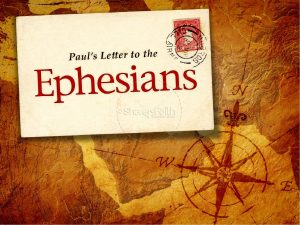
Philippians 4:4-7
Some have asked, “what do we do now that church has been cancelled? Well, it depends how you define church. Yes, we have cancelled the meeting together at Sunday morning at 10:30 in a building, but you cannot cancel a movement.
The dictionary defines a movement as, “a series of organized activities by people working concertedly toward some goal”.
That is the church, we focus the attention of a group of people on a specific goal. And that specific goal has not changed for 2000 years.
Many churches have temporary goals; building buildings, alleviating poverty, or focusing on some social injustice, but the primary goal of the church remains the Great Commission.
This terrible virus is forcing us to look at everything we do and our religious practices to determine and I believe to refine our goals. As we evaluate the church, I am reminded of the early church in Acts 2, they met in small groups in homes and in the temple courts daily. So, when people say, “I watched a sermon online, I attended church”, I must disagree, you took in some information, but the body of Christ must be together. There is a family aspect that is vital to us functioning as the church.
The important point is that isolation is not the designed posture of the church, we need to be in community, and we need to be caring for one another and praying for one another during this time of anxiety and worry.
Fear has prevented many Christians from experiencing all that God intends for you in your life. Fear of death, fear of failure, fear of a virus that seems to be rapidly affecting everything we know.
The key to victory over worry and anxiety, is found in Philippians 4:4-7.
Anxiety is the most pervasive psychological problem in our society. And we have no shortage of fuel for the fire of anxiety in March 2020.
In Philippians 4:4-7 Paul addresses anxiety and it is very practical and transformational as we apply the principles of God’s word. The Apostle Paul knew what it was like to experience hardship, he was in chains as he wrote this letter, and yet he was full of joy and encouragement.
What was Paul’s secret?
Paul starts verse 4 by making an imperative statement, “Rejoice in the Lord always; again, I will say, rejoice.”
There is a huge difference between joy and happiness; joy flows out of security in a relationship.
There is a direct connection between joy and love.
Gaining a greater understanding of the love that God, your Heavenly Father, has for you, will give you peace and joy. The Prophet Habakkuk understood this as he wrote in Habakkuk 3:17-18,
Paul had the same confidence as the prophet Habakkuk, Paul was convinced that God was in control and that God would fulfill the promises of His word (see Romans 8:28).
Do we have that same confidence? Or am I anxious because deep down, I am not fully convinced that God is able, or that God is truly good.
When we search our hearts, the root of anxiety can be traced to unbelief in the all-powerful Creator of the universe.
Verse 5 continues, “Let your reasonableness be known to everyone. The Lord is at hand”
We as followers of Jesus are to be known as people who are reasonable. But not just reasonable, some translations will say, gentleness or patience, the Greek word incorporates all the fruit of the Spirit (see Galatians 5:22-23).
As we live the Spirit-filled life we will exhibit these qualities to those around us.
Philippians 4:6 is the key to overcoming anxiety; it is prayer. Paul makes an imperative statement, “do not be anxious about anything”. Prayer is the Biblical prescription for the illness of anxiety.
There are three aspects to this prescription for anxiety found in verse 6; Prayer, supplication and thanksgiving.
1: Prayer – Is the attitude of the person coming before the all-holy, all-powerful Creator. Prayer is by nature humility, a recognition of who we are communicating with. Prayer never begins with words; it begins in the heart and a humble attitude towards God.
Prayer is admitting our weakness and submitting with dependence and recognition to the Creator of the universe. But more than that, we as believers in Jesus Christ can call the Creator, Father! We as children of God, come into His throne room, He is delighted to speak to us.
2: Supplication – This is the act of sharing our needs and problems with God. Not because He doesn’t know what we need, but rather because as we verbalize our needs, God works in our own hearts and prepares us for the answer to our prayers. God doesn’t need our prayers, but He responds when we pray, because that is the way He has ordered the universe.
3: Thanksgiving – It is crucial to thank God even before we have received the answer to our prayers. All prayer is to be accompanied by thanksgiving. We are to be thankful because God is going to give us exactly what we need in response to our prayers.
And then finally verse 7: “And the peace of God, which surpasses all understanding, will guard your hearts and your minds in Christ Jesus.”
Through prayer, we can experience the peace of God, a miraculous work of God bringing peace to the heart and mind of the believer. This does not mean the absence of trials, Jesus said we would still have that in John 16:33, but the peace of God is the ability to handle the trials without them stealing our joy.
This is too much for us to grasp, “it surpasses all understanding” as verse 7 says.
This peace is the result of the person who has taken everything to God in prayer, with thanksgiving.
The peace of God is a protection against anxiety, stress and against bitterness towards those who have wronged us.
Verse 7 ends with the key, the key to this peace and joy is found “in Christ Jesus”. Only in the completed work of what Jesus did on the Cross and by his resurrection power are we able to experience the peace of God.
Did you speak with the Prince of Peace today?


